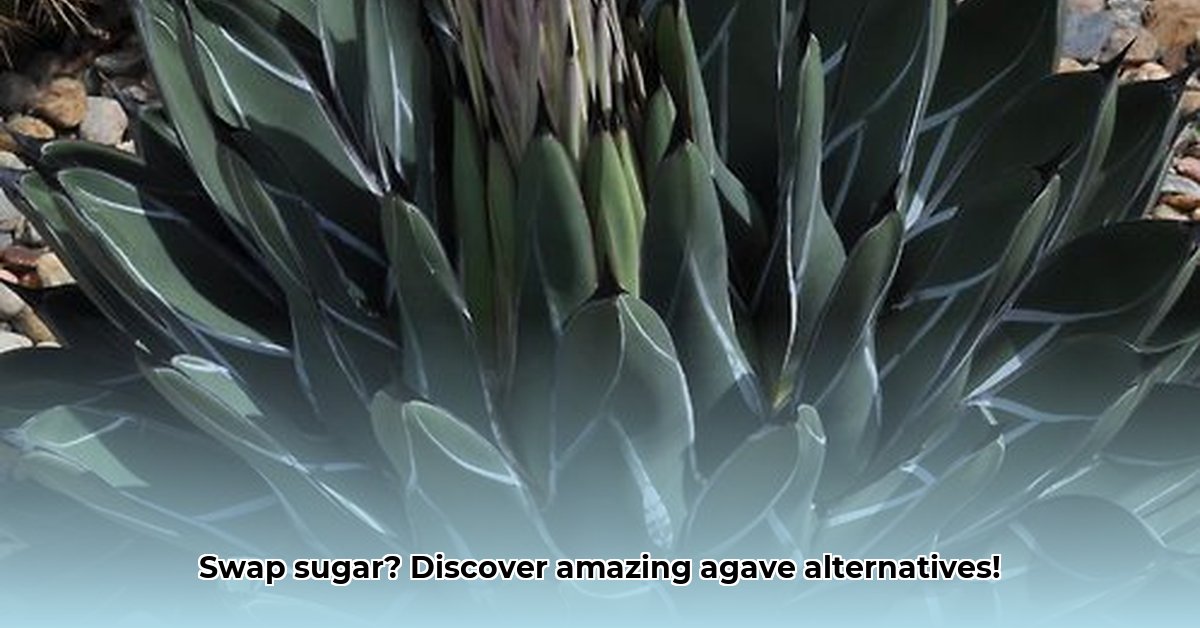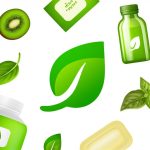Agave nectar is a popular sweetener, but its production often involves water-intensive practices that are not always sustainable. This article offers a comparative analysis of eco-friendlier alternatives, evaluating their environmental impact and suitability for various recipes.
Exploring Sustainable Sweeteners: A Comparative Analysis of Agave Alternatives
Agave nectar’s widespread use comes with environmental concerns related to water usage and ecological disruption. Fortunately, several delicious and more sustainable alternatives exist. Let’s explore these options and determine which best suit your needs and values.
Honey: The Ancient Sweetener & Its Local and Global Impact
Honey has been a favored sweetener for millennia, with its complex flavor profiles varying exquisitely based on the diverse floral sources visited by bees. The environmental impact of honey production hinges significantly on beekeeping practices. Sustainable beekeeping practices, which prioritize bee health, genetic diversity, and habitat preservation, are crucial for minimizing harm. Purchasing local honey shortens transportation distances, strengthens regional economies, and reduces your carbon footprint. Supporting beekeepers who practice ethical and sustainable methods ensures the long-term well-being of bee populations and the ecosystems they support. Beyond local, consider certifications that promote bee-friendly practices on a larger scale.
Maple Syrup: A Natural Choice From Northern Forests and Beyond
Maple syrup, traditionally derived from the sap of maple trees in North American forests, offers a distinctive, rich flavor embodying the essence of the forests from which it originates. However, maple syrup production extends beyond North America. Its environmental impact is generally low when forests are managed responsibly, ensuring the long-term health and biodiversity of these ecosystems. The syrup possesses a unique profile, being thicker with a characteristic maple flavor that adds depth to everything from pancakes to pastries. Being a seasonal product deeply connected to the rhythms of nature, it’s important to consider the origin and context of its production. Opt for syrup from sustainably managed forests to minimize disturbance and promote ecological balance.
Brown Rice Syrup: A Milder, Versatile, and Widely Applicable Option
Brown rice syrup undergoes more processing than honey or maple syrup but offers a milder sweetness suitable for a wide range of culinary applications. Its impact on blood sugar is gentler than that of high-fructose corn syrup, making it a preferred choice for those managing glucose levels. While producing it requires water and energy, advancements in processing techniques are continually reducing its environmental footprint. Explore the sustainability initiatives of producers and opt for those committed to minimizing resource consumption and waste.
Coconut Nectar: A Tropical Alternative Sourced Responsibly and Globally
Coconut nectar, derived from the sap of coconut palm blossoms, delivers a unique caramel-like sweetness that adds a tropical twist to your favorite dishes. Sustainable harvesting practices are crucial to minimize environmental harm and ensure the long-term health of coconut palm ecosystems. Sourcing directly from local producers can be ideal, supporting communities and minimizing transportation emissions, but it’s also important to consider the broader global supply chains involved. Look for certifications that guarantee ethical and environmentally responsible production practices.
Molasses: The Byproduct With A Bold Flavor and Hidden Potential
Molasses, a byproduct of sugarcane or beet sugar production, offers a dark, rich flavor that adds depth and complexity to baked goods and sauces. While resourceful in utilizing a byproduct, it’s important to recognize that sugarcane and beet production carry their own environmental impacts. Its bold flavor may not suit all tastes, but its concentrated sweetness can be used sparingly to reduce overall sweetener consumption. Consider the source of your molasses and choose those derived from sustainably managed sugar operations.
Agave Substitute Comparison: Quick Glance
| Agave Substitute | Pros | Cons |
|---|---|---|
| Honey | Natural, diverse flavors, supports local economies, long history of use | Potential habitat loss, price varies, not always local, ethical concerns regarding bee treatment |
| Maple Syrup | Natural, unique flavor, relatively low impact (if sourced well) | Seasonal, potential for forest damage if not managed well, geographical limitations |
| Brown Rice Syrup | Mild sweetness, versatile, widely applicable | Water & energy usage in processing, still some processing, potential for arsenic contamination |
| Coconut Nectar | Unique flavor, lower glycemic index | Supply chain challenges, potential for monoculture, ethical concerns regarding worker treatment |
| Molasses | Byproduct, inexpensive, rich flavor | Strong flavor, depends on sugar production’s impact, potential for labor exploitation |
| Date Syrup | Rich in nutrients, lower water usage compared to some alternatives | Can be expensive; flavor may not suit all applications |
Finding Your Sweet Spot: Choosing the Right Alternative
The best agave substitute ultimately depends on your specific needs, taste preferences, dietary requirements, and unwavering commitment to sustainability. Prioritize local sources whenever possible to minimize your carbon footprint and support regional economies. Consider the entire production process, from cultivation to transportation, not just one isolated aspect.
Looking beyond agave unlocks a world of sweet possibilities, allowing you to explore diverse flavors while minimizing your environmental impact. With careful research and conscious choices, you can discover your perfect sweet spot, balancing taste, health, and environmental responsibility.
Evaluating Environmental Impacts: A Comprehensive Guide to Sustainable Agriculture and Consumption
The surging demand for agave products, particularly tequila and agave nectar, is causing significant sustainability concerns related to resource depletion and ecological disruption. Overharvesting, which damages fragile desert ecosystems and threatens essential pollinating bats, creates an unsustainable cycle that demands immediate attention. Finding and promoting sustainable substitutes is, therefore, a crucial step toward mitigating these harmful effects. How to compare environmental impacts of agave nectar substitutes for sustainable agriculture involves evaluating land usage, water needs, carbon footprints, and ecosystem effects in a comprehensive and transparent manner.
The Agave Sustainability Paradox: Addressing the Root Cause
Current agave production often involves environmentally damaging practices that disrupt ecosystems, exploit resources, and harm pollinators, leading to an unsustainable cycle that cannot be ignored. Finding and adopting sustainable substitutes is essential, not just as a consumer choice, but as a necessary step towards solving this complex paradox.
Framework for Comparison: Key Environmental Factors
Choosing sustainable alternatives requires a holistic approach that carefully considers the interconnectedness of environmental, social, and economic factors. Key elements of this framework include:
- Water Usage: Conduct a thorough assessment of the water requirements for each substitute’s production, including rainfall reliance, irrigation demands, and overall contribution to water stress in arid or semi-arid regions.
- Land Use: Evaluate the land footprint of each substitute, considering potential deforestation, habitat conversion, and the impact on biodiversity hotspots.
- Carbon Footprint: Accurately measure the greenhouse gas emissions associated with every stage of production, including cultivation, processing, packaging, and transportation to global markets.
- Biodiversity Impact: Determine whether the production negatively affects local ecosystems, carefully considering the impact on pollination patterns, soil health, native flora and fauna, and the implementation of integrated pest management strategies.
Potential Agave Nectar Substitutes: A Closer Look
- Date Syrup: Generally requires less water compared to agave, but large-scale monoculture production may present localized environmental concerns, such as soil degradation and water pollution.
- Maple Syrup: A natural sweetener with a relatively high carbon footprint due to concentrated geographical production and transportation needs.
- Coconut Sugar: Requires less processing than many other sweeteners, but its sustainability is highly dependent on ethical sourcing, responsible farming practices, and the prevention of habitat destruction for coconut plantations.
- Rice Syrup: A potentially sustainable alternative with regional variations in production practices. Look for producers who prioritize water conservation and minimize chemical inputs.
Consumer Role: Driving Demand for Sustainability and Transparency
Consumers play a critical and influential role in driving demand for sustainable practices and promoting transparency throughout the supply chain. Support fair trade practices that ensure fair wages and safe working conditions for farmers and producers, recognizing that true sustainability encompasses both environmental and social responsibility.
Sustainable Baking: Finding the Right Agave Nectar Substitutes for Your Recipes
Agave nectar’s high fructose content can pose both health and baking challenges, leading to increased blood sugar levels and potential imbalances in flavor profiles. Finding sustainable agave nectar substitutes for baking recipes is essential for both health and environmental reasons, allowing you to create delicious treats with a clear conscience. This article explores a range of sustainable swaps, offering practical tips and expert advice for seamlessly adapting your favorite recipes.
Why Alternatives Matter: Health and Baking Considerations
Agave nectar’s intense sweetness and high fructose content raise legitimate health concerns, including potential impacts on liver function and insulin sensitivity. Finding more balanced and environmentally friendly options is crucial for responsible baking that prioritizes both personal well-being and planetary health.
Sustainable Baking Options
- Maple Syrup: A natural sweetener with a distinctive, robust flavor that enhances baked goods. Ensure your syrup is sustainably sourced from well-managed forests committed to long-term ecological health.
- Honey: A versatile classic alternative with diverse flavor profiles that vary depending on the floral source. Source your honey sustainably from local beekeepers who prioritize ethical treatment of bees and environmental stewardship.
- Date Syrup: Offers a mellow sweetness and unique caramel notes that add depth and complexity to baked goods. It’s generally considered more sustainable, requiring fewer resources and less processing than other sweeteners.
- Brown Rice Syrup: Provides a mild sweetness and neutral flavor that complements a wide range of ingredients. Look for organic options to support sustainable farming practices that minimize chemical inputs and promote soil health.
- Coconut Sugar: Adds a subtle caramel-like flavor and a slightly coarser texture to baked goods. Consider sustainability certifications to ensure responsible production practices that protect ecosystems and support local communities.
Practical
- Why Am I Always Thinking About Food? Your Body and Brain Explain - February 2, 2026
- Healthy Eating Is About Quality, Not Just Calories - February 1, 2026
- Healthy Living Products to Elevate Your Wellness Routine - January 31, 2026










